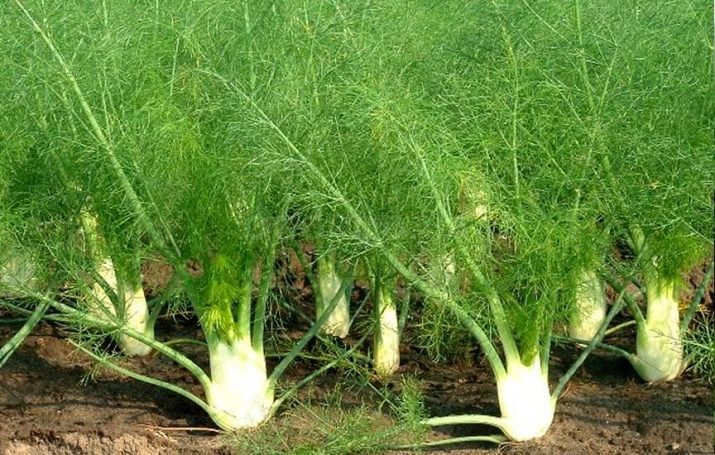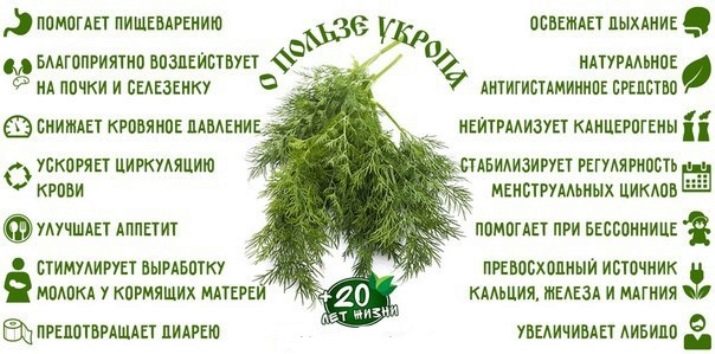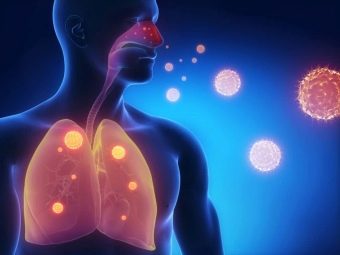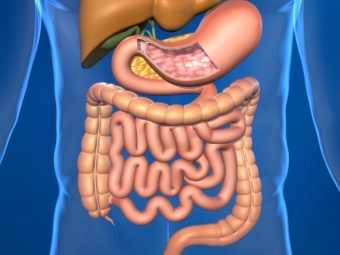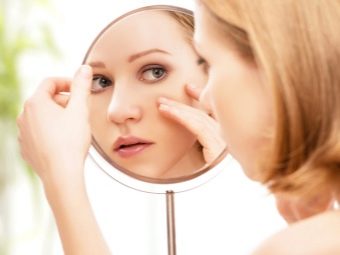Dill root: benefit and harm, methods of application in traditional medicine
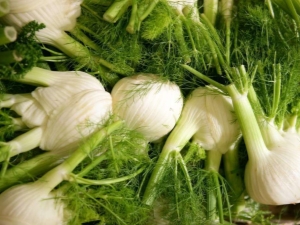
The most common spice in the Russian table is dill.It can be added literally to any dish: borscht, potatoes, fish, meat, salads, and indeed, perhaps, everything except sweet pastries. He owes such popularity not only to his savory taste, but also to healing qualities. Useful properties of dill were mentioned in the writings of healers and alchemists of the Middle Ages. The most useful part of it is the root, which will be discussed in this article.
About plant
Dill is an annual plant with thin feathery leaves and a long stem up to two meters. In it, you can use absolutely every part from the roots to the seeds.
It propagates by self-sowing, many umbrellas form a seed with a strong shell. Dill is a very unpretentious plant that easily tolerates the vagaries of the weather, does not need fertilizers and chemicals, and practically does not get sick, which further increases its attractiveness in the eyes of gardeners. All he needs is regular watering, as he loves moisture. Harvest can begin in the spring. After collecting the first greens, the same place is sown for the next crop of dill. Several plants are often left to produce seeds.
As for the collection, then many have a question to cut or pick dill. It will be better to tear it up, since the root is the most useful part and there is no point in leaving it in the ground.
New plants grow from seeds that you can collect from adult umbrellas and scatter yourself.
Useful properties of dill
In dill a lot of useful, it is rich in vitamins, minerals, and also contains many flavonoids and essential oils. It has vitamins of group B, as well as C, A and P. It also contains carotene, folic acid, calcium, magnesium, mineral salts and many other useful elements.
Dill root is especially useful, which not only contains many chemical elements that are useful for the human body, but also has a high energy value. Any dish with its addition will be both more useful and more nutritious for the body.
As already mentioned, dill is rich in essential oils, especially a large amount of them found in the seeds. Seeds can be used in pure form, but usually they are used to make a decoction, which they drink instead of tea. Essential oil has a very good effect on the digestive and circulatory system, and also disinfects the body.
In addition, dill has a beneficial effect on the liver, respiratory system, eyesight and nervous system. It is especially useful for women, as it helps to cope with the symptoms of premenstrual syndrome (PMS), reducing headaches and menstrual pain, as well as calming the nervous system.
Dill application
In addition to cooking, dill is widely used in traditional and traditional medicine. Powders, ointments, infusions, decoctions, lotions and, of course, tea are made from it. Most often they are used to treat the following diseases.
- Diseases of the respiratory system. For their treatment, dill decoctions are used, which help to effectively cope with cough and cold. This decoction is even used as an adjunct in the treatment of asthma.
- Cardiovascular diseases. Since the cardiovascular system is practically the main direction of the useful properties of dill, here they usually use everything that is possible: decoctions, infusions, tea and so on. Especially these tools help to cope with hypertension.
- Various diseases of the digestive system, as well as kidney and liver. Even in its pure form, dill helps to cope with many of the problems associated with the stomach. It helps to increase secretion, actively removes bile from the body and even helps cure the digestive tract.
- Malfunctions of the nervous system. Dill helps restore the nervous system. It has a calming effect on the body, thereby helping to cope with stress and stress.
- Bruises, cuts and inflammations. In case of damage or malfunction of the outer layers of the skin, the use of ointment and lotion often helps.As already mentioned, dill has a strong disinfecting effect, which is why it not only helps heal wounds, but also effectively fights various inflammatory processes.
- Skin problems Many cosmetologists advise washing with dill water in case of various skin problems, such as acne and black spots.
- Diet. Often, dill is used for weight loss. It can be added to various dishes and drink water with seeds (a tablespoon of seeds per glass of water). Diets heavily load the intestines, dill also helps to normalize the work of the stomach. In addition, it helps to quickly eliminate the feeling of hunger, despite the fact that it has almost no calories.
In addition to folk, dill is used in traditional medicine. In small quantities it is in many medical preparations. In addition, based on it, a drug called "Anetin" was created, which effectively fights various heart diseases.
Possible harm
Can cause dill and harm. There are certain contraindications for its use.
- Hypotension. It has already been said that dill is recommended for people suffering from hypertension. And for people suffering from hypotension, it, of course, should not be used.
- Lack of items. Dill can be used to prevent this disease. However, for people who already suffer from a shortage of nutrients in the blood, it is not recommended because of its diuretic effect.
- Pancreatitis. It is not recommended for people with inflammation of the pancreas. Because of the effect it has on the intestines, it is impossible to use it in any case in case of pancreatitis, otherwise there is a risk to aggravate the problem.
- Poor eyesight. Dill dilates blood vessels, which is why many people who use dill note a decrease in visual acuity. The effect of this temporary and after the termination of the reception, everything quickly returns to normal, but people with poor eyesight still need to be careful with him.
- Pregnancy. Dill should not be consumed during pregnancy. Under certain circumstances, it can trigger an early birth or miscarriage.
In addition to people whose condition is indicated above, everything else should be neat with dill. It should be remembered that the main rule in the use of any medicinal plant is moderation. Often, excessive use or use of alternative medicine based on dill has led to various allergic reactions.
For the benefit and harm of dill root, see the next video.

